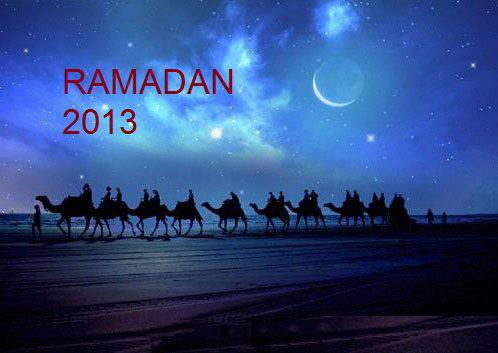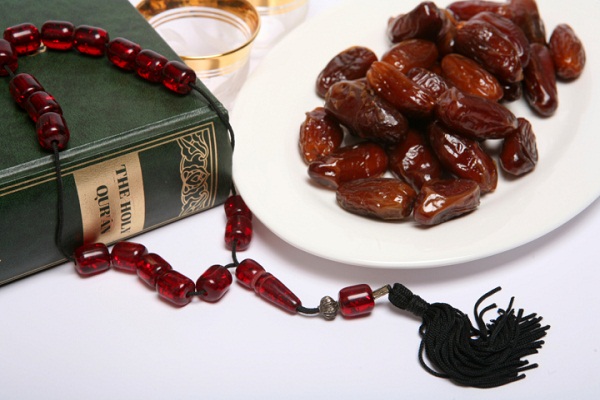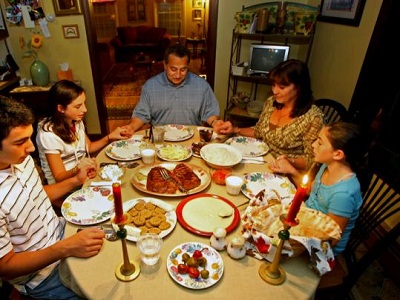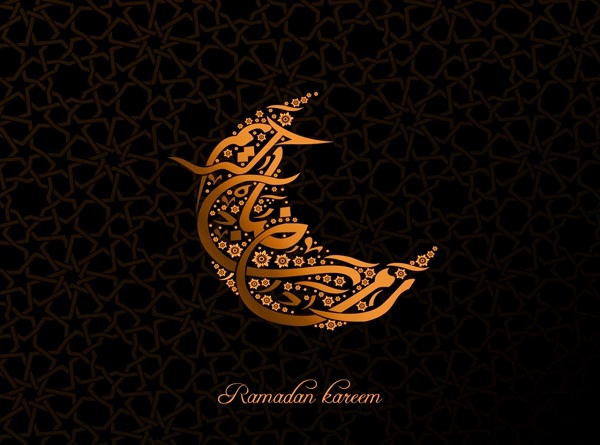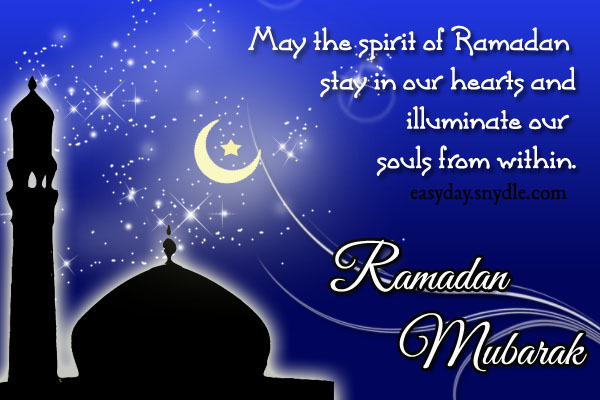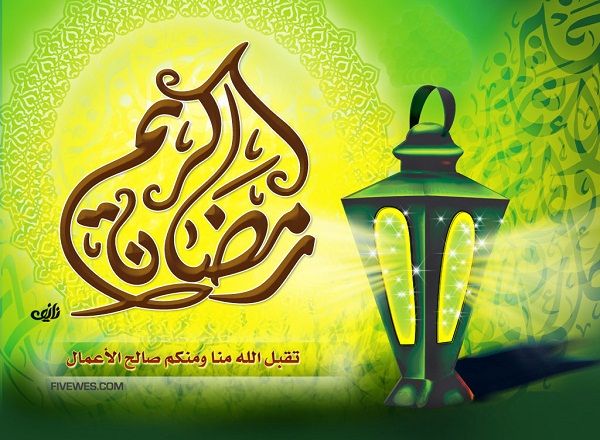
Ramadan 2017
When is Ramadan 2017: Starting on May 27, Saturday – Ending on June 25, Sunday
I never realized how faith and belief can surpass, undermine and even ignore the most basic human feeling, hunger, until I learned about Ramadan. From the moment that human beings were born, they are programmed to immediately gratify the surge of uncomfortable yearnings in the stomach. Eating meals are essential. Without food, naturally, a person dies.
But Ramadan, the ninth month celebrated in the Muslim community is an epitome that hunger, though a natural response of the human body for the lack of food, may be undermined under conditions of the mind. Ramadan is all about faith and humanity. This is the practice that Muslims worldwide celebrate as the Five Pillars of Islam. And yes, fasting or the act of withdrawing the human body from food or from certain foods is done during Ramadan. Let’s dig more about Ramadan 2013.
Content at Glance
What is Ramadan | Why Muslim Fast | Ramadan Fasting | Fasting Rules | When is Ramadan | Ramadan Dates | What is Ramadan Kareem | What is Ramadan Mubarak | Ramadan Wishes | Wallpapers |
What is Ramadan?
Most of you have probably ask this: What is Ramadan? Some will answer that it’s an important holiday for Muslims. Some may say that it is a time for fasting. So let me ask you, what is Ramadan, exactly?
Fasting or “sawm”, in Arabic terms, has been the main practice of Ramadan under obligatory circumstances. Surely, fasting during Ramadan does not completely imply going without food or water. There are, however, guidelines to the what, when and how certain foods are eaten and which are not. Other than food, there are certain activities such as sex, listening to music, arguing, putting drops to the eyes or allowing saliva to reenter the mouth after its exit.
There are also exemptions on certain people on fasting. Among are children those undergoing menstruation, those on travel, those in poor health, pregnant women, nursing women and those are managing to feed thirty poor people each day.
Fasting does not apply only to the human urge to eat. This also covers the abstinence from evil thoughts, words and actions. For instance, a person must avoid from allowing his/her mind to travel so relentlessly, especially to malicious thoughts. A person must not use his/her tongue to talk too much for this exercises the tongue. In the same light, a person must not allow his/her body from doing excessive activities. Thus, the means of fasting for Ramadan goes beyond hunger. It is the involvement of the whole human body: an oath to cleanse and purify the soul for divine salvation.
However, Ramadan does not only define itself through fasting and abstinence. Fasting is the most essential practice for this purifies the soul. Other than fasting, prayers are also recited during the Ramadan.
Thus, the picture becomes clearer: Ramadan is in fact the holiest celebration for the Muslim community. It is the ninth month of the Islamic calendar. It is the month that the Muslim community spends their daytime for a complete fasting. It is a time that the Muslim community devote themselves to follow the teachings in the Qur’an and the prophecy of Muhammad.
Benefits of Ramadan
There can be no question that Ramadan, being a holy celebration that unites Muslims worldwide, has been equally celebrated by other religions as well because of its intense impact that pulls the heartstrings even of the richest capitalist in the corporate world. Because of the devotion that Muslims have put into Ramadan, the whole world is also put into complete solemnity.
- Ramadan is all about faith. For Muslims around the world, Ramadan brings Muslims closer not only amongst their fellowmen/-women but also to the Creator. There is divinity and intense human devotion that intertwines with this celebration.
- Muslims worldwide, with Ramadan and the devotion to fasting, are able to feel more sympathy and connection to the poor and the oppressed by feeling themselves the pain of hunger and lessen human activity that consequently lessens the human potential.
- Muslims also reflect on the acts of becoming more generous to the needy and the hungry upon the event of allowing themselves to experience hunger themselves.
- Ramadan has health benefits, as this month-long celebration restrains and prohibits bad habits to the body such as smoking; thus, Muslims are able to change bad habits and turn over a new leaf.
- Muslim community camaraderie is established throughout the world. When one is sacrificing with the community. The act becomes a basis of unity. Throughout the centuries, the bondage of Muslims achieve during Ramadan is impenetrable and inevitable despite the changing times because of its followers.
Benefits of Fasting in Ramadan
Muslims believe that fasting gives tons of returns. Some of them are:
- Fasting allows spiritual concentration. It is a biological fact the human body finds its peace when equilibrium is established in all aspects. When too much activity in the body is present, concentration lessens and the attentions of the human brain commits itself accordingly to the dominant activity; however, when human activity is lessened, equilibrium is established. Concentration is more likely to be fulfilled. In other words, fasting may be said as a counterpart of meditation for the Muslim community.
- Fasting cleanses the soul. It is of no doubt that fasting includes sacrificing a human want to eat. When one is able to establish losing food, he/she is able to strengthen his/her faith. It is negative reinforcement. Losing food that result into soul purification.
- Fasting builds camaraderie among the Muslim community. The Muslim community has survived despite rapid Westernization / Americanization because of the tight bondage created through religious beliefs. Over centuries, the identity of the Muslim community has been institutionalized vis-à-vis the Ramadan celebration. There is unity built among the Muslim community. Fasting is a community affair.
- Fasting means following the example of the Prophet Mohammed. Mohammed himself has fasted during his journey to salvation, which later on gave birth to the discovery of the Qur’an. There is holiness achieved and spiritual reward obtained through following the footsteps of Mohammed.
- Fasting is also beneficial to the health. Because there are certain foods being consumed during Ramadan, these certain foods are nonetheless healthy and energy-sustaining. More on vegetables and less protein is being consumed by the body.
Image: islamicrenaissance
Rules in Ramadan Fasting
While there are benefits, there are rules to consider. But take note that these rules exist as a means to maintain the holiness of Ramadan at the same time preserve the biological strength of the followers during the fasting. Even the Qur’an advises that followers should have their bodies preserved despite of the rigorous spiritual act. Here are some rules that administer and guide Ramadan fasting:
- First, Muslims should consult their health conditions whether they are in good health standing before committing themselves into fasting. (1) Because the month of Ramadan is also during hot days of the year, it may be advisable to stay under shades or limit too much physical activity. (2) Water is the beverage choice during Ramadan for a reason. It rehydrates the loss of water in the body; thus, it is very advisable to drink water most of the time to stay hydrated.
- On a daily basis, the Suhoor is a pre-fast meal that is eaten before dawn breaks. After the Suhoor is eaten, everyone is called upon for the prayer. This is the point that marks the beginning of the fasting.
- When sunset approaches, families gather to break the fasting and take a fast-breaking meal called the Ramadan Iftar.
- Dates are usually the food of choice for the Iftar, especially, this was the food taken by Mohammed himself during his own fasting.
- There are those exempted from fasting: the pregnant, the nursing women, those with illness (mental and physical), children and those who will travel.
When is Ramadan?
The next question to ask upon hearing that the Ramadan 2013 will be here is that “when is Ramadan” then? Please note that the calendar that Muslims use might be different from what you’re using. Muslims use Islamic lunar calendar to calculate Ramadan dates and timings. They also use what is called “Ramadan moon sighting” to determine the start of the Ramadan.
This 2013, the Ramadan dates will be:
will start on July 9, 2014, Monday
and will end on August 7, 2014, Wednesday
Ramadan Dates
The dates of Ramadan may vary yearly. Most of you are probably looking forward to the next Ramadan, or simply wanting to know the previous Ramadan dates, so I’ve listed the 5 years advance dates of Ramadan such as follows:
- When is Ramadan 2012: Started on July 20, Friday – Ended on August 18, Saturday
- When is Ramadan 2013: Starting on July 9, Monday – Ending on August 7, Wednesday
- When is Ramadan 2014: Starting on June 28, Saturday – Ending on July 27, Sunday
- When is Ramadan 2015: Starting on June 18, Thursday – Ending on July 16,
- When is Ramadan 2016: Starting on June 6, Monday – Ending on July 5,
- When is Ramadan 2017: Starting on May 27, Saturday – Ending on June 25, Sunday
- When is Ramadan 2018: Starting on May 16, Wednesday – Ending on June 14, Thursday
Ramadan Kareem Meaning
Most of you have probably heard these phrases as soon as the Ramadan season approaches. Ramadan Kareem to all of my friends and relatives, etc. What exactly Ramadan Kareem is? I can’t help but to ask myself, What is the meaning of Ramadan Kareem in English?
As I search online, I found that Ramadan Kareem meaning is that “Ramadan Generous”. Kareem is an Arabic word which means “Generous“. The person who’s greeting someone a Ramadan Kareem intend to wish that someone to have a fruitful Ramadan, and enjoy the generous blessings of Allah.
Ramadan Mubarak Meaning
How about Ramadan Mubarak? Have you encountered this phrase too? Same here. Admit it, most of you are confused what Ramadan Mubarak really mean. Actually, Ramadan Mubarak in English is translated to “Blessed Ramadan”. Yes, from the word itself, a person who greet someone a “Ramadan Mubarak” intend to wish someone to have a blessed Ramadan. This may also mean that a person is excited that it is the month of Ramadan, a time that all should be glad for the blessing is multiplied so they say “Congratulations, it’s Ramadan”.
Now, which one is better to use? As for my own preference, I think it is better to use the phrase “Ramadan Mubarak” than the “Ramadan Kareem”. It makes more sense, although I am not saying that you should refrain from using “Ramadan Kareem” as your greetings.
Ramadan 2013 Greetings, Wishes and Messages
Here is Allah, the one God, the designer, the maker.
All the most beautiful names belong to Him.
He is the most great and most sensible.
Happy Ramadan!You cannot count all the blessing that Allah has given you,
you will run out of numbers to recall them.
But I am grateful to Allah for giving me a friend like you.
A blessed Ramadan to you.In this holy month of Ramadan,
May all the good things come in your way.
May you have all the desires in your heart to come true.I wish you and your family a peaceful Ramadan.
All the goodness wishes are with you.
May you continue to be a blessing to each and everyone.
Find more Ramadan Wishes….
Ramadan Pictures and Ramadan Wallpapers
Image: Photobucket
Image: Genuardis
Ramadan is and will always be a Muslim tradition that will survive even when centuries pass. It is not only about a hungry stomach such that popular media would portray. It is devotion. A commitment and a community camaraderie that is most significant to the Muslim world. As the world watches, surely, Ramadan is also a global phenomenon that has gone triple platinum.





